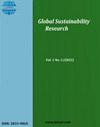Test of Good Governance in Nigeria using World Bank indicators
引用次数: 0
Abstract
The concern for good governance and its role in development process has increased since 1980s. Nigeria has experienced uninterrupted democracy since 1999. This study carryout a test of good governance in Nigeria using the six indicators of good governance used by World Bank. Specifically, the study determine the effect of voice and accountability, political stability and absence of violence and terrorism, government effectiveness, regulatory quality, rule of law and control of corruption on economic development in Nigeria using per capita GDP as a proxy for economic development. Inflation rate and oil price were included in the model in order to produce a robust model. Annual data covering 1999 to 2022 were collected from World Bank website. Descriptive statistics were used to summarize data while Autoregressive Distributed Lag Model and Bound tests were used to estimate relationship. Findings revealed that the performance of governance in Nigeria in all the six indicators during the period of study was weak. This consequently affect per capita income negatively both in the short-run and long-run. It was concluded that governance has negative effect on economic development in Nigeria. It was recommended that the government should use worldwide indicators to conduct self-evaluation and carry out reforms that will help to improve governance in Nigeria for the purpose of achieving development or improving the wellbeing of Nigerians.利用世界银行指标检验尼日利亚的善治情况
自 20 世纪 80 年代以来,人们越来越关注善治及其在发展进程中的作用。尼日利亚自 1999 年以来经历了不间断的民主。本研究利用世界银行使用的六项善治指标对尼日利亚的善治情况进行了检验。具体而言,本研究确定了发言权和问责制、政治稳定、无暴力和恐怖主义、政府效率、监管质量、法治和腐败控制对尼日利亚经济发展的影响,并以人均国内生产总值作为经济发展的替代指标。为了建立一个稳健的模型,通货膨胀率和石油价格也被纳入模型中。从世界银行网站收集了 1999 年至 2022 年的年度数据。描述性统计用于总结数据,而自回归分布滞后模型和约束检验则用于估计两者之间的关系。研究结果表明,在研究期间,尼日利亚在所有六项指标上的治理表现都很薄弱。因此,这对人均收入产生了短期和长期的负面影响。结论是,治理对尼日利亚的经济发展有负面影响。建议尼日利亚政府利用世界范围内的指标进行自我评估,并进行改革,这将有助于改善尼日利亚的治理,从而实现发展或改善尼日利亚人民的福祉。
本文章由计算机程序翻译,如有差异,请以英文原文为准。
求助全文
约1分钟内获得全文
求助全文
来源期刊

Global Sustainability Research
sustainability and environmental focus-
自引率
0.00%
发文量
0
期刊介绍:
Global Sustainability Research (ISSN: 2833-986X) is an Open Access journal dedicated to supporting the rapidly expanding area of global sustainability research. Global Sustainability Research Journal publishes original research and reviews which seeks to address and discuss ways to deliver sustainable development. Manuscripts submitted to Global Sustainability Research must address issues linked with the achievements of sustainability and sustainable development goals.
 求助内容:
求助内容: 应助结果提醒方式:
应助结果提醒方式:


